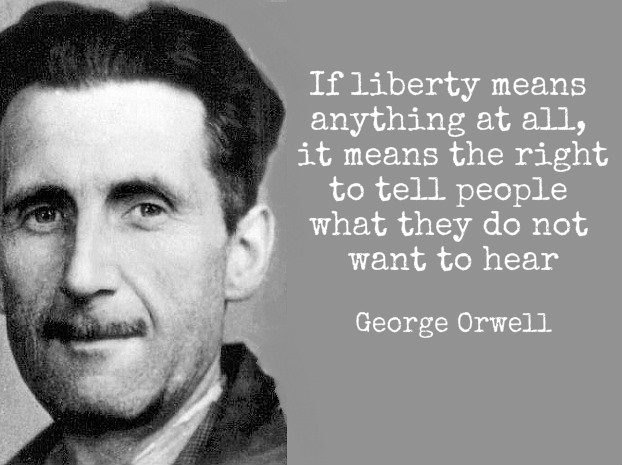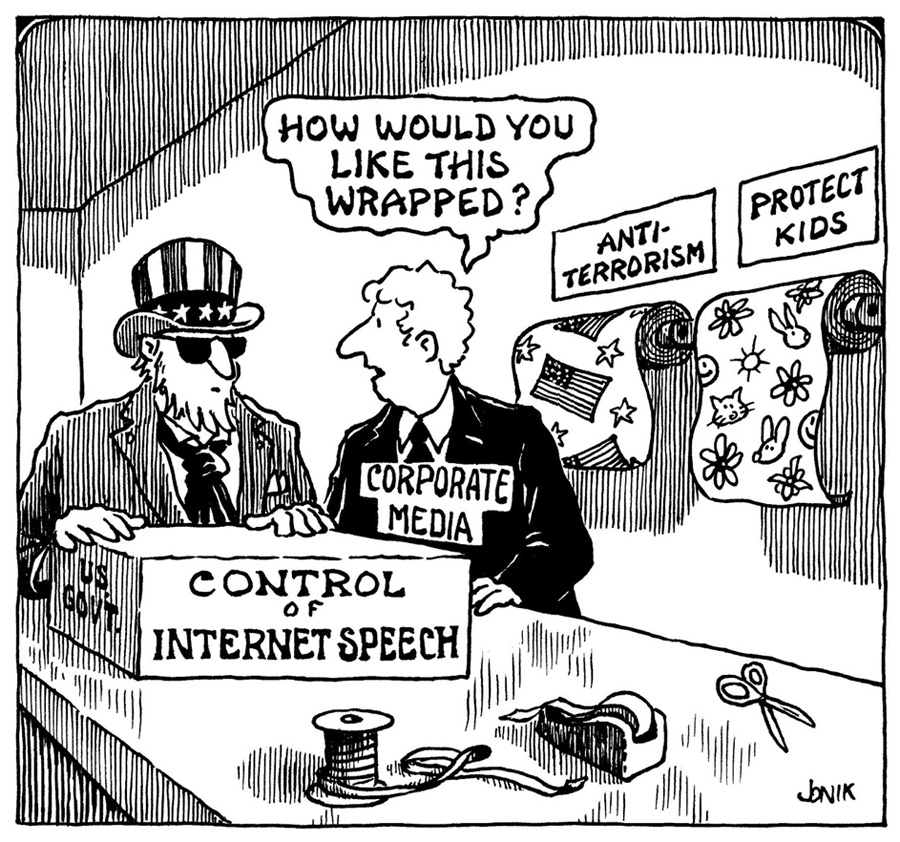
Freedom of speech is a gray area that often many are left confused with as controversial topics arise and test the limits of free speech. In a recent study, nearly 97 percent of self-proclaimed liberal college students found free speech to be important and 54 percent of those same students believed that the Confederate flag is deemed hateful and should be removed from public vicinities (Althoff, 2015). While many of these students have argued that free speech is a right, many surprisingly are more likely to support censorship, leaving confusion over what is free speech. As this survey was taken among 18-24 year old college students, many of the issues of free speech appear more commonly on college campuses.
Wharton college student Luis De Castro began to feel ostracized as word had spread that he was pro-life. De Castro began to feel that “free speech is limited by the unwillingness of peers to consider the views of others” (Simon, 2015). A history professor from Wharton notes “a growing belief that everyone has the right not to be offended” is what is lending a hand in censorship across campuses (Simon, 2015). One important aspect is that when students attend college they are placed in a world where peoples’ views differ widely from their own and then learn how to deal with it without saying it is impeding on their free speech. De Castro is a “moderate conservative” and explained that people only cared about what his opinion was and not the reasons behind them. Due to this, people on his campus deemed him anti-woman and anti-contraception based on this one aspect.
Another article from Wesleyan University stated that a newspaper was to be defunded after an article about the movement Black Lives Matter was published and many protested against this article. In September, Bryan Stascavage wrote an article about Black Lives Matter arguing about the tactics, and those who are anti-cop. Stascavage’s article did not contain any racial slurs or name-calling, as is typical in such articles. After publication, students began to burn copies of the newspaper and Stascavage received remarks from students calling him “racist” (Rampell, 2015). An apology was published in the newspaper and stated the newspaper would be a “safe space for the colored community” (Rampell, 2015). However, this did not end the outrage as students petitioned to defund the school newspaper that had been present on the Wesleyan campus for 150 years. Stascavage was aware of the college and the majority of liberal views and sought it out to challenge his own views. The student government voted to cut the funding in half for the school newspaper.
Both of these instances happened at liberal colleges. Do you think this issue is restricted to these colleges where there is a majority of same viewed students or is it becoming more prevalent among other universities where people are more diverse?
When should you watch what you say?

As social media becomes more prevalent in the world, the issue of internet censorship has become more controversial. A Freedom House study has found that 29 percent of the 65 countries Freedom House surveyed are “not free” while 27 percent are “free” (Fung, 2015). Attacks on newspaper Charlie Hebdo could be an explanation for the drop of France’s scores as government surveillance began shortly after. Cuba became more flexible, possibly due to the United States relations with Cuba allowing for cheaper Internet as U.S Internet providers are now allowed to do business there (Fung, 2015). Many tech companies have accused law enforcement of allowing the decrease in Internet security with the use of “back doors”, but authorities argued that this is to fight terrorism and crime.

Social media websites are often privately owned and they therefore have the right to remove offensive comments or content that violates their terms and services. This has been confused with limiting one’s free speech, but rather it is censorship (Henry, 2012). Many companies believe it to be in their best interest to allow consumers to write reviews, both positive and negative as it can potentially contribute to future developments.
When should censorship be used?
What speech should be protected on the Internet?
References
Althoff, E. (2015, November 3). YAF study finds liberal students confused by concept of ‘free speech’. Retrieved November 4, 2015.
Fung, B. (2015, October 28). The Internet is getting less and less free. Retrieved November 4, 2015.
Henry, A. (2012, October 22). What Exactly Is Freedom of Speech and How Does It Apply to the Internet? Retrieved November 4, 2015.
Rampell, C. (2015, October 22). Free speech is flunking out on college campuses. Retrieved November 4, 2015.
Simon, C. (2015, October 30). Free speech at Penn: Protected by rules, limited by culture. Retrieved November 4, 2015.
Images:
http://www.londonlovesbusiness.com/Pictures/web/y/r/j/George-Orwell—quot_622.jpg
https://img.washingtonpost.com/wp-apps/imrs.php?src=https://img.washingtonpost.com/blogs/the-switch/files/2015/10/Screen-Shot-2015-10-28-at-14.16.33.jpg&w=1484
http://cdn.iwastesomuchtime.com/1302013182717.jpg